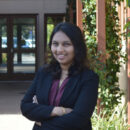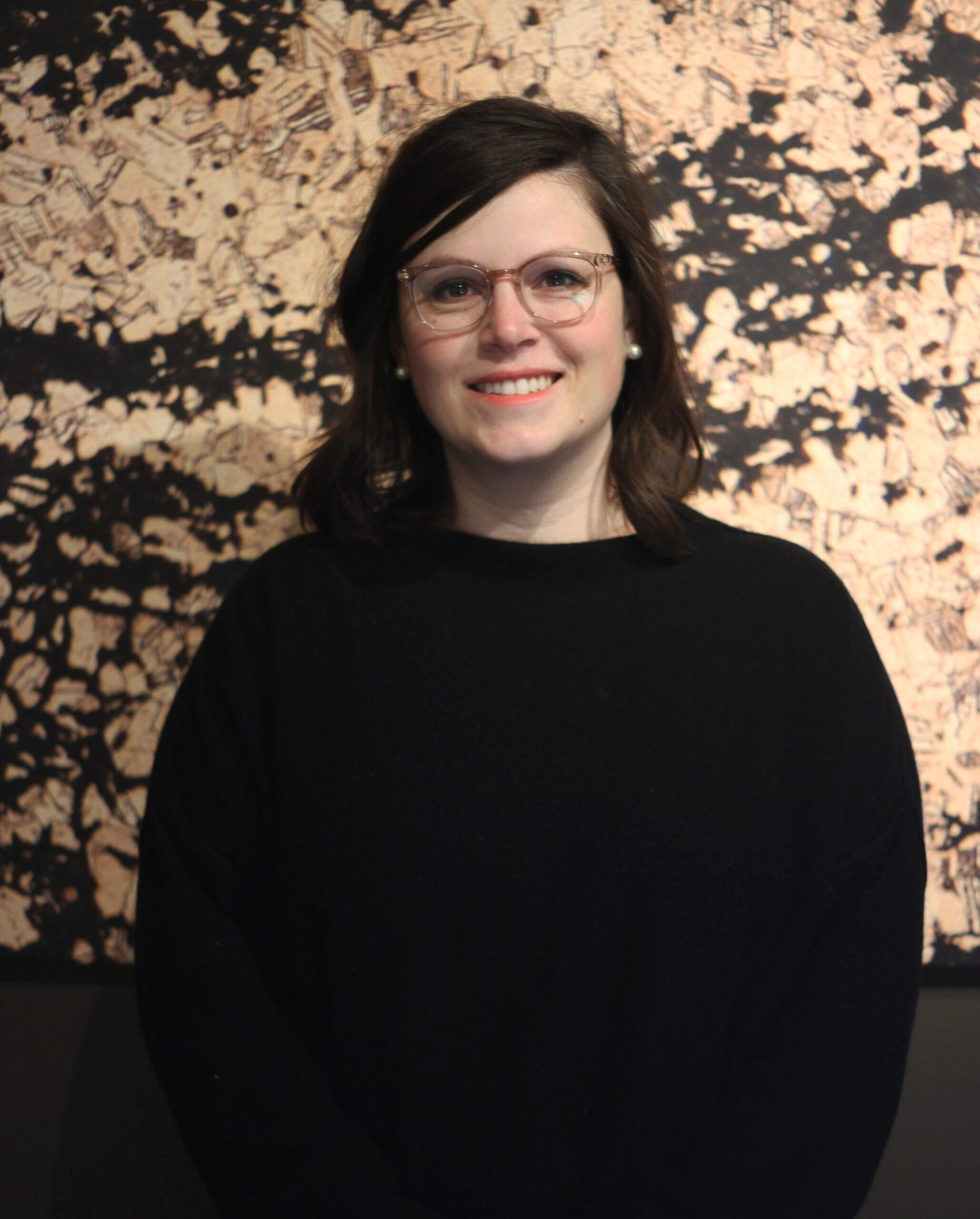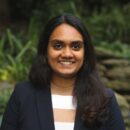
Keynote Speaker

Nasrin Mostafazadeh
Co-Founder
Verneek
Bio
Dr. Nasrin Mostafazadeh is a world-renowned AI scientist and co-founder of Verneek, a deep tech AI startup backed by business and scientific luminaries.
Verneek’s mission is to build the most helpful AI, enabling anyone to interact with any environment using intelligent conversational interfaces with deep
domain expertise. She was named to Forbes’ 30 Under 30 in 2019 for her contributions to the research and development of AI systems for the past 18 years.
Before Verneek, she held senior research positions at major big tech companies and deep-tech startups, ranging from Microsoft and Google to BenevolentAI. She received her PhD in AI with a focus on Natural Language Processing and Commonsense Reasoning. She has been a keynote speaker, chair, published author, and committee member at major business and scientific forums.
Conference Speakers

Hamsa Bastani
Associate Professor of Operations, Information, and Decisions at the Wharton School, University of PennsylvaniaBio
Hamsa Bastani is an Associate Professor of Operations, Information, and Decisions at the Wharton School, University of Pennsylvania. Her research focuses on developing novel machine learning algorithms for data-driven decision-making, with applications to healthcare operations, social good, and revenue management. Her work has received several recognitions, including the Wagner Prize for Excellence in Practice (2021), the Pierskalla Award for the best paper in healthcare (2016, 2019, 2021), the Behavioral OM Best Paper Award (2021), as well as first place in the George Nicholson and MSOM student paper competitions (2016). She previously completed her PhD at Stanford University, and spent a year as a Herman Goldstine postdoctoral fellow at IBM Research.

Hether Danforth
General Manager, Education Solutions US Education and Academic Medical Centers, MicrosoftBio
Hether Danforth is the General Manager of Education Solutions Sales at Microsoft. Her team is dedicated to empowering higher education, K12, and Academic Medical Center organizations throughout the United States, supporting over $1.6B in business for the US Education subsidiary. Hether and her team collaborate closely with institutional, educational, government, and healthcare leaders to accelerate their strategy and initiatives, bringing forward the power of technology. Their goal is to empower faculty, students, researchers, and physicians by leveraging the full spectrum of Microsoft technology, from AI to Cloud to Collaboration and more.
Hether holds a degree in Economics from St. Lawrence University and currently resides in Massachusetts with her husband and two sons. Her passions outside of work include hiking, skiing, and paddleboarding. She is also an enthusiastic traveler, continuously exploring the world in search of culinary delights and exciting adventures.

Surbhi Goel
Magerman Term Assistant Professor, Computer and Information Science, University of PennsylvaniaBio
Surbhi Goel is the Magerman Term Assistant Professor of Computer and Information Science at University of Pennsylvania. I am associated with the theory group, the ASSET Center on safe, explainable, and trustworthy AI systems, and the Warren Center for network and data sciences.
My research interests lie at the intersection of theoretical computer science and machine learning, with a focus on developing theoretical foundations for modern machine learning paradigms especially deep learning.
Prior to this, I was a postdoctoral researcher at Microsoft Research NYC in the Machine Learning group. I obtained my Ph.D. in the Computer Science department at the University of Texas at Austin advised by Adam Klivans. My dissertation was awarded UTCS’s Bert Kay Dissertation award. My Ph.D. research was generously supported by the JP Morgan AI Fellowship and several fellowships from UT Austin. During my PhD, I visited IAS for the Theoretical Machine learning program and the Simons Institute for the Theory of Computing at UC Berkeley for the Foundations of Deep Learning program (supported by the Simons-Berkeley Research Fellowship). Before that, I received my Bachelors degree from Indian Institute of Technology (IIT) Delhi majoring in Computer Science and Engineering.

Alyssa Hwang
University of Pennsylvania StudentBio
Alyssa Hwang is a fourth-year PhD student in the Department of Computer and Information Science at the University of Pennsylvania, where she works with Professors Chris Callison-Burch and Andrew Head on Human-AI Interaction. She focuses on AI interfaces that efficiently deliver complex information, especially audio-first interfaces like voice assistants and audiobooks. Her research has been featured by Associated Press, TechCrunch, Penn Today, and other news outlets. Beyond research, Alyssa is a chair of the CIS Doctoral Association, founder of the CIS PhD Mentorship Program, and volunteer speaker for outreach programs like the Diversity and Equity Initiative in the Mind Sciences (DivE In at Penn). Previously, she was supported by the NSF Graduate Research Fellowship Program. Alyssa received her BS in computer science from Columbia University, where she wrote an undergraduate thesis with Professor Kathleen McKeown.

Mingyao Li
Professor of Biostatistics in Biostatistics and Epidemiology, University of Pennsylvania Perelman School of MedicineBio
Dr. Mingyao Li joined the Biostatistics faculty in 2006. She is also a faculty member of the Genomics and Computational Biology graduate program. Her main research area is statistical genetics and genomics. The central theme of her current research is to use statistical and machine learning approaches to understand cellular heterogeneity in human disease relevant tissues, to characterize gene expression diversity across cell types, and to study the patterns of cell state transition and crosstalk of various cells using data generated from single-cell transcriptomics studies. In addition to methods development, Dr. Li is also interested in collaborating with researchers seeking to identify complex disease susceptibility genes. Her collaborative research includes cardiometabolic diseases, age-related macular degeneration, Alzheimer’s disease, chronic kidney disease, type 1 diabetes, and cancer. Findings from her research will seed cell-specific functional studies, in vivo modeling, and precision therapeutic targeting of human diseases. Dr. Li actively serves in the scientific community. She is an Associate Editor of Statistics in Biosciences, and was a regular member of the Genomics, Computational Biology and Technology study section and a member of the review committee of the Center for Inherited Disease Research of the NIH.

Sarah Linn
Assistant Director of Academic Engagement, Penn MuseumBio
Sarah Linn, Ph.D., is the Assistant Director of Academic Engagement and oversees student programming. She joined the Penn Museum in 2015 and developed several programs that specifically address the curricular and professional needs of undergraduate and graduate students. Dr. Linn is a graduate of University of Pennsylvania’s Art & Archaeology of the Mediterranean World program, studying social status through mortuary contexts in the ancient Greek world. Dr. Linn has co-curated two exhibitions at the Penn Museum – “Invisible Beauty: The Art of Archaeological Science” and “The Stories We Wear”. She oversees the Museum’s popular Graduate Guides program and is co-Project Director for the Heritage West Community Archaeology project.

Lilach Mollick
Director of Pedagogy, Wharton InteractiveBio
Lilach Mollick is the Director of Pedagogy at Wharton Interactive. Her work focuses on the development of pedagogical strategies that include artificial intelligence and interactive methodologies. She has worked with Wharton Interactive to develop a wide range of educational tools and games used in classrooms worldwide. She has also written several papers on the uses of AI for teaching and training, and her work on AI has been discussed in publications including The New York Times and Vox. She advises companies and organizations on the advantages and risks of AI in teaching. Lilach holds a Doctorate in education and a Master of Science in professional writing from NYU.

Jamie Samper
Associate Director of Data Computing & Research Support, Analytics at WhartonBio
Jamie Samper, PhD is the Associate Director of Data Computing and Research Support at Analytics at Wharton. In her role, she works with corporate partners to define research projects and oversees the execution by student and faculty researchers. At Wharton, Jamie constructs and delivers engaging workshops on technical coding and effective communication of research methods and findings.
Prior to joining Wharton, Jamie earned her PhD from Temple University in Psychology, specializing in Cognitive Science research and quantitative methods, with a focus on memory systems and auditory processing.
Throughout her academic career, Jamie dedicates part of her time to instructing courses on Cognitive Neuroscience and Research Statistics, and is passionate about mentoring students as they prepare for careers in data science.

Lasya Sreepada
Bioengineering PhD Candidate, University of PennsylvaniaBio
Lasya Sreepada is a Bioengineering PhD Candidate at the University of Pennsylvania working with Dr. Corey McMillan and Dr. David Wolk in the Bioinformatics in Neurodegenerative Disease Lab, as part of the Penn Alzheimer’s Disease Research Center. Lasya is passionate about interdisciplinary collaborations weaving neuroscience, data science, and pharmaceuticals to design and deliver innovative therapeutic solutions that make a difference in global healthcare.
For her PhD, Lasya studies atypicality and heterogeneous disease mechanisms in Alzheimer’s disease by applying bioinformatics and deep learning approaches to analyze neuroimaging, epigenetics, and genomics data. As an undergraduate, Lasya worked with Dr. Alexander Lin at Harvard Medical School to identify molecular biomarkers of neurotrauma.
Lasya received her BS in Neuroscience from Yale University in 2019 and received her MSE in Data Science from Penn Engineering in 2023.

Aashika Vishwanath
University of Pennsylvania StudentBio
Aashika is a sophomore studying Computer Science, Engineering Entrepreneurship, and Data Science at the University of Pennsylvania. She is currently the President of the Wharton Undergraduate Data Analytics Club, about 500 members strong, where she leads organized educational sessions and events focused on Python, Machine Learning, and Data Science. She is also a data science consultant at Wharton Analytics Fellows, where she worked with IKEA to increase their digital conversion rate using advanced analytical models and visualization techniques.
Aashika has also been an AI/ML research assistant at universities such as MIT and Wharton, utilizing various data analysis tools and methodologies on large financial and economics datasets.
Outside of her academic involvements, she is a content creator, running a YouTube channel on Artificial Intelligence with nearly 13,000 subscribers, and she has authored a book on AI that has seen global sales. Additionally, Aashika is passionate about Indian classical dance, with over 14 years of experience, and enjoys expressing her creativity through ancient Indian art.

Annie Wang
University of Pennsylvania StudentBio
Annie Wang is a junior at the Wharton School and the College of Arts & Sciences interested in statistics, finance, and math. She is the Co-President of Wharton Analytics Fellows, a program that provides students the opportunity to consult for corporate clients on their data science problems. She is excited to share her experience tackling real-world business problems in optimizing email marketing and customer engagement through data science at the WiDS conference.

Lynn Wu
Associate Professor of Operations, Information and Decisions, University of PennsylvaniaBio
Lynn Wu is an associate professor at the Wharton School. She teaches MBA, undergraduate and PhD classes about the use and impact of emerging technologies on business.
Her research examines how emerging information technologies, such as artificial intelligence and analytics, affect innovation, business strategy, and productivity. Specifically, her work follows three streams. In the first stream, she examines how data analytics and artificial intelligence affect firm innovation, business strategy, labor outcomes, and productivity for both large firms and startups. In her second stream, she studies how enterprise social media and online platforms affect work performance, career trajectories, entrepreneurship success, and the formation of new type of biases that arise from using technologies. In her third stream of research, Lynn leverages fine-grained nanodata available through online digital traces to predict economic indicators such as real estate trends, labor trends and product adoption.

Betty Xu
MSE Electrical Engineering Student, University of PennsylvaniaBio
Betty Xu is a second-year MSE Electrical Engineering student at the University of Pennsylvania. She is currently a data science research assistant at the Wharton Neuroscience Initiative, and her main research interest involves leveraging the power of artificial intelligence to advance the understanding of the brain’s intricate workings.
Betty’s current research endeavors delve into two critical areas. First, she explores how the brain unpacks individual differences in their financial decisions, and how AI can dissect and predict complex uncertainty perceptions behind financial decision-making processes. Additionally, Betty’s work involves harnessing AI to decode the mysteries of head injuries, utilizing EEG data to shed light on the complexities of brain trauma.
Conference Co-Chairs

Susan Davidson
Weiss Professor of Computer and Information Science, University of PennsylvaniaBio
Susan B. Davidson is an American computer scientist known for work in databases and bioinformatics. She is Weiss Professor of Computer and Information Science at University of Pennsylvania. Her dissertation work on distributed databases included results on statistical and mathematical techniques for data resolution as well as mechanisms to avoid database conflicts.
Susan has also done research in bioinformatics, where her work (with collaborators) on data integration was commercialized by GeneticXChange. She also serves on the board of the Computing Research Association.

Mary Purk
Executive Director, AI at WhartonBio
As Executive Director of AI at Wharton, Mary Purk leads the AI academic research center that focuses on how AI tools can be utilized to solve business problems, customer journeys, and discover the human impact of AI and smart technologies for consumers, firms, and society.
Ms. Purk and the AIW team leverage the resources of the Wharton School to be seen as a world leader in the study of the business and societal impacts of advances in AI and technology to keep the world informed of any new research, teaching, or outreach related to AI, new technologies, and/or its impacts to expand Wharton’s footprint in the AI/technology domain.
Ms. Purk connects students, academics, and professionals across multiple industries to solve complex, real-world business challenges using machine learning, AI, and big data.

Linda Zhao
Professor of Statistics and Data Science, The Wharton SchoolBio
Linda Zhao is a Professor of Statistics and Data Science at the Wharton School of the University of Pennsylvania. She is a Fellow of the Institute of Mathematical Statistics. Linda specializes in modern machine learning methods.
After getting her PhD in Mathematics/Statistics from Cornell University, Linda taught in UCLA, Los Angeles for one year. She joined the Wharton School in 1994. She obtained a Bachelor of Science degree from the Mathematics department of Nankai University, China.
Linda’s research area covers from Bayesian analysis, nonparametric analysis and numerical computation. She mainly publishes in international leading journals. Current on going projects include forecasting house prices, inference for high dimensional data, data with measurement errors and post model selection inferences. Linda also enjoys teaching very much.


